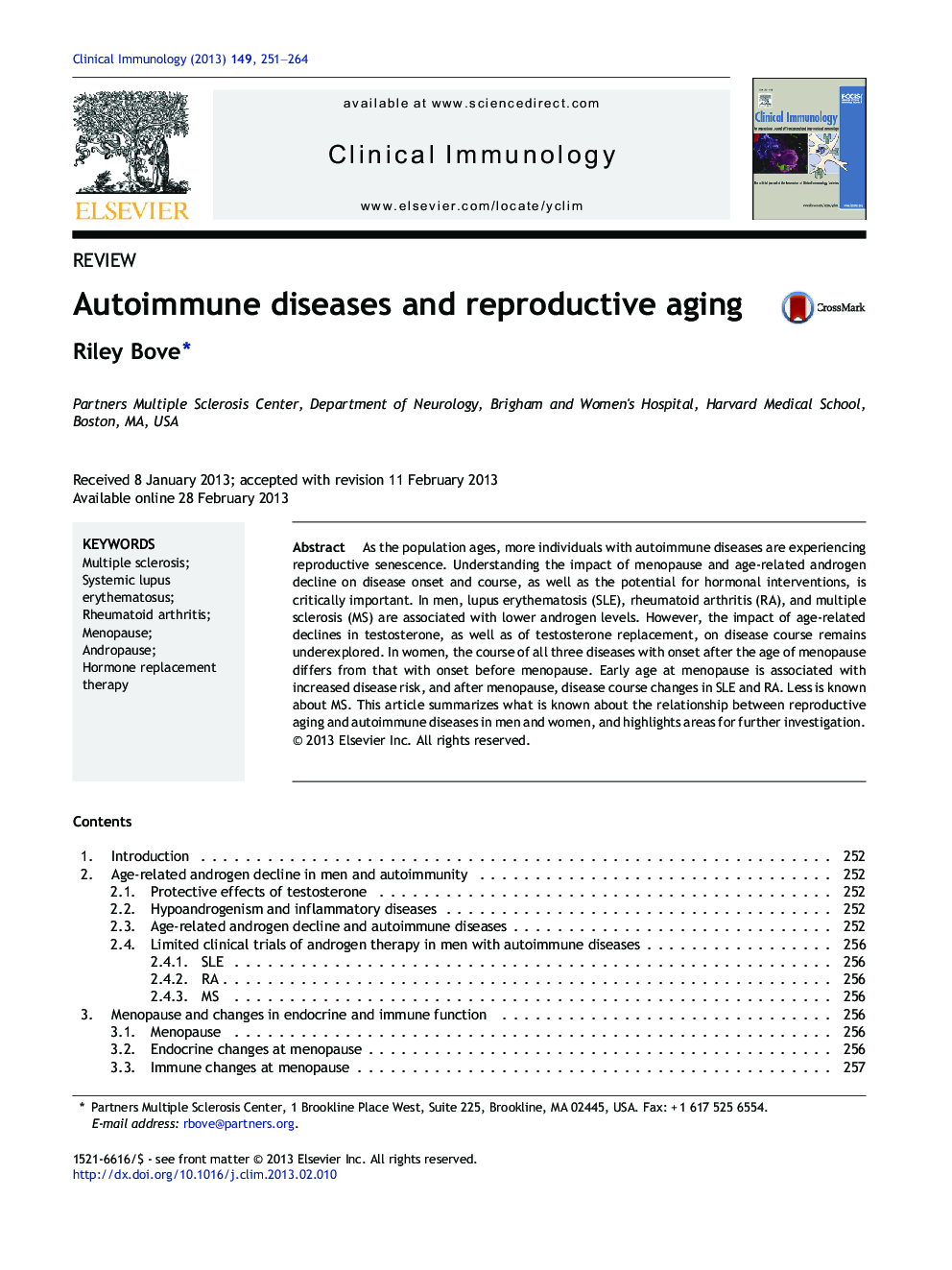| کد مقاله | کد نشریه | سال انتشار | مقاله انگلیسی | نسخه تمام متن |
|---|---|---|---|---|
| 3256907 | 1207372 | 2013 | 14 صفحه PDF | دانلود رایگان |

As the population ages, more individuals with autoimmune diseases are experiencing reproductive senescence. Understanding the impact of menopause and age-related androgen decline on disease onset and course, as well as the potential for hormonal interventions, is critically important. In men, lupus erythematosis (SLE), rheumatoid arthritis (RA), and multiple sclerosis (MS) are associated with lower androgen levels. However, the impact of age-related declines in testosterone, as well as of testosterone replacement, on disease course remains underexplored. In women, the course of all three diseases with onset after the age of menopause differs from that with onset before menopause. Early age at menopause is associated with increased disease risk, and after menopause, disease course changes in SLE and RA. Less is known about MS. This article summarizes what is known about the relationship between reproductive aging and autoimmune diseases in men and women, and highlights areas for further investigation.
► Men with SLE, RA and MS may have lower testosterone levels than healthy controls.
► Early age at menopause increases risk for SLE and RA.
► After menopause, SLE and RA disease severity and progression changes; no investigations in MS.
► Onset of SLE, RA and MS after menopause confers a different course than onset before menopause.
► Hormone replacement therapies may not play a big role in altering disease course.
Journal: Clinical Immunology - Volume 149, Issue 2, November 2013, Pages 251–264